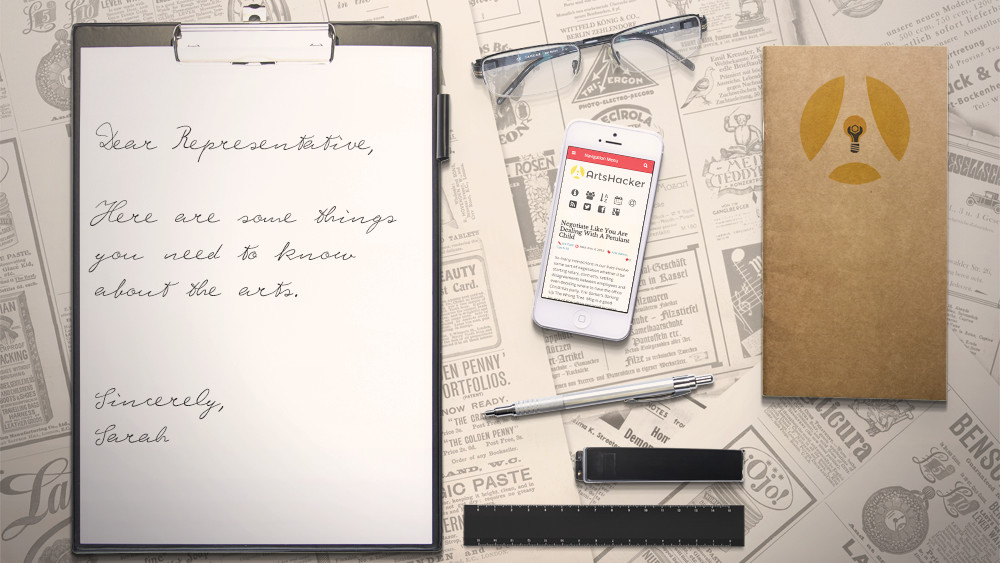One of my favorite parts of my job is the part that I get to pretend I’m a Washington, D.C. lobbyist. As the Community Engagement Manager, I get assigned the large task of doing small advocacy work.
Building relationships with legislators is important and should be on someone’s plate. It doesn’t need to be a lot; but a little bit of effort can go a long way. (See my previous ArtsHacker post on 10 Ways to Build A Strong Relationship With Your Legislator). A great way to do that is to send write your legislators each year.
What To Write About
Write about your organization and the things you’ve done in the past year. Highlight stories and successes, but also don’t be afraid to put in your challenges.
Think about including:
- Number of artists/staff you employed
- Free community events you hosted, particularly if they are patriotic in nature
- Number of students engaged throughout the year
- Money spent with local vendors
- How many audience members you attracted from various zip codes
- Contributed and earned revenue
Towards the end of the letter, highlight your upcoming season briefly. Include an invitation to them to attend a concert, exhibit, school performance, or other event.
Bonus points: Look up each legislator’s district and add a section that highlights the work you did in their district.
In the 2014/15 season, in your district, District 1, we:
- Performed in 4 schools and community location
- Drew over 951 ticket buyer
- Had 187 students attend our Young People’s Concert
- Provided salaries for 10 musicians and staff residing there
It takes some work to find districts and correlate locations with them (blessings upon your interns!), so my best tip is to go roughly by zip codes.
How To and Who To Send It To
- Pull together a list of your City Council members, County Commissioners, Mayors, State delegation (both House and Senate), and Congressional representatives. Consider any other officials to include like your state’s Art Commission, school board members, Chamber of Commerce leaders, or community funders. Does your organization do work in other counties? Consider including those legislators as well.
- Visit your city’s or county’s official website, and locate the Council or Commission members. If addresses aren’t listed, send it to them at the office location. If you can’t find this website, visit your county’s election commission website which should have results of the latest election listed.
- Visit your state’s website and look for a header like “Government” or “Legislature”. You’ll be able to find your particular representatives by searching by your organization’s address.
- Visit the Congressional House’s or Senate’s website and search by your address or state. You may want to send a letter to both their Washington office and their local office.
- Use a combination of paragraph and bullet points. Bullet point facts and figures so they are easy to understand and easily scannable.
- Proof your letter. Proof it again. Nothing is worse than printing off 100 letters and finding a that you misspelled Veterans.
- Hand sign the letters.
Bonus points: Sign in a colored, like blue, ink. Your actual signature in a different color will stand out and they’ll be more likely to pay attention to your letter. - If you choose, include a season guide or another marketing material.
- Send it off! Make this a regular part of your advocacy work by doing it at the beginning or end of your fiscal year.
